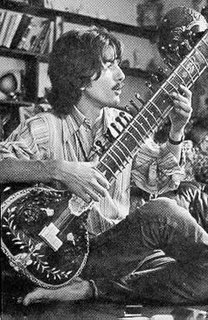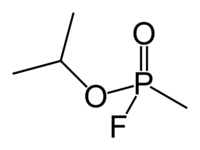
Tuesday, October 03, 2006
The Daily Hump: Sitars and Guitars
About 6 weeks ago I began taking Persian. It's an amazingly beautiful and logically constructed language that shares numerous ancient Indo-European roots with our modern English. Like when learning any language, one of the first things you do is count to 10:
yêk, do, sé, chahâr, panj, shesh, haft, hasht, no, dah
 This leads us to the first of today's words. Thanks to the early works of George Harrison, the sitar, originally of northern Indian origin, has become a fairly recognizable instrument in the West. The word sitar is, however, purely Persian and comes from the words sé (three) and tar (string). Per Wikipedia:
This leads us to the first of today's words. Thanks to the early works of George Harrison, the sitar, originally of northern Indian origin, has become a fairly recognizable instrument in the West. The word sitar is, however, purely Persian and comes from the words sé (three) and tar (string). Per Wikipedia:
 Upon learning the etymology of sitar in class last night I immediately drew a connection to guitar. Guitar seems to share the tar (string) root, which would make sense, but what is the gui- portion? Again, Wikipedia:
Upon learning the etymology of sitar in class last night I immediately drew a connection to guitar. Guitar seems to share the tar (string) root, which would make sense, but what is the gui- portion? Again, Wikipedia:
yêk, do, sé, chahâr, panj, shesh, haft, hasht, no, dah
 This leads us to the first of today's words. Thanks to the early works of George Harrison, the sitar, originally of northern Indian origin, has become a fairly recognizable instrument in the West. The word sitar is, however, purely Persian and comes from the words sé (three) and tar (string). Per Wikipedia:
This leads us to the first of today's words. Thanks to the early works of George Harrison, the sitar, originally of northern Indian origin, has become a fairly recognizable instrument in the West. The word sitar is, however, purely Persian and comes from the words sé (three) and tar (string). Per Wikipedia: A similar instrument is used to this day in Afghanistan, and the original Persian name is still used. Both instruments are most likely derived from the Kurdish tembûr, which is a long, lute-like instrument with no gourd resonating chamber. Both the tembûr and sehtar were used in pre-Islamic Persia and are used in Iran today.For whatever reason the instrument gained strings when adopted into Indian culture.
 Upon learning the etymology of sitar in class last night I immediately drew a connection to guitar. Guitar seems to share the tar (string) root, which would make sense, but what is the gui- portion? Again, Wikipedia:
Upon learning the etymology of sitar in class last night I immediately drew a connection to guitar. Guitar seems to share the tar (string) root, which would make sense, but what is the gui- portion? Again, Wikipedia: The modern word, guitar, was adopted into English from Spanish guitarra, derived from earlier Greek word kithara. Prospective sources for various names of musical instruments that guitar could be derived from appear to be a combination of two Indo-European roots: guit-, similar to Sanskrit sangeet meaning "music", and -tar a widely attested root meaning "chord" or "string".Per the OED, guitar first made it into the English language in the 14th century, in the form of gittern. You may also be interested to note that the Greek kithara (cithara) is responsible for our English word zither.
The word guitar may be a Persian loanword to Iberian Arabic. The word qitara is an Arabic name for various members of the lute family that preceded the Western guitar. The name guitarra was introduced into Spanish when such instruments were brought into Iberia by the Moors after the 10th century.
Labels: Arabic, Greek, Kurdish, Persian, Spanish, The Daily Hump
Friday, September 15, 2006
The Daily Hump: Mating Season
 We all know what a stalemate is. In chess this is a result when the person whose turn it is has no allowable moves and their king is not in check. More figuratively, a stalemate refers to any situation which ends in a draw. Likewise, when a stalemate occurs in chess the game is drawn. Before we delve into the etymology, I think it's interesting to note that a stalemate did not always result in no winner. Per the OED,
We all know what a stalemate is. In chess this is a result when the person whose turn it is has no allowable moves and their king is not in check. More figuratively, a stalemate refers to any situation which ends in a draw. Likewise, when a stalemate occurs in chess the game is drawn. Before we delve into the etymology, I think it's interesting to note that a stalemate did not always result in no winner. Per the OED,In England from the 17th c. to the beginning of the 19th c. the player who received stalemate won the game. Various other rules have been in vogue at different times; sometimes the player giving stalemate won, either wholly or to the extent of half the stake; sometimes the last few moves had to be played over again until a mate resulted; sometimes the piece causing the obstruction was removed.Up until the 18th c. the situation we now call a stalemate was simply known as a stale. For whatever reason the word mate was later appended as a suffix. It's generally believed that the word stale harkens back to the Old French estaler (to come to a standstill). Mate is simply a shortened form of checkmate, and a stalemate could not logically involve a checkmate, thus the word stalemate is a misnomer. On a side note, estaler was adopted into Middle English and spawned our modern verb stall.
Our modern word checkmate comes from the Middle English checkmat which was from the Old French eschec mat which goes back even further to the Arabic šāh māt, literally "the king is dead." The Arabic šāh, meaning "king", was borrowed from the Persian shāh--a title that was used by the monarchs of Iran, most recently by the leader deposed in the 1979 Iranian Revolution.
The plural form of checkmate's Old French ancestor, eschec mat is esches. In Middle English esches was shortened to simply ches, which is where, of course, we find our word for the game itself, chess.
Thus, linguistically speaking, chess is truly the game of kings.
stalemate [OED]
checkmate [OED]
Labels: Arabic, Middle English, Old French, Persian, The Daily Hump
Wednesday, August 23, 2006
The Daily Hump: Serendipity
 ser·en·dip·i·ty (sĕr'ən-dĭp'ĭ-tē)
ser·en·dip·i·ty (sĕr'ən-dĭp'ĭ-tē)n.Usage note: Serendip should not be confused with sarin dip. In fact, if you find yourself around a sarin dip it's most likely not serendipity.
1. The faculty of making fortunate discoveries by accident.
2. The fact or occurrence of such discoveries.
3. An instance of making such a discovery.
We are indebted to the English author Horace Walpole for the word serendipity, which he coined in one of the 3,000 or more letters on which his literary reputation primarily rests. In a letter of January 28, 1754, Walpole says that "this discovery, indeed, is almost of that kind which I call Serendipity, a very expressive word." Walpole formed the word on an old name for Sri Lanka, Serendip. He explained that this name was part of the title of "a silly fairy tale, called The Three Princes of Serendip: as their highnesses traveled, they were always making discoveries, by accidents and sagacity, of things which they were not in quest of...."
[From the characters in the Persian fairy tale The Three Princes of Serendip, who made such discoveries, from Persian Sarandīp, Sri Lanka, from Arabic sarandīb.]
[The American Heritage® Dictionary of the English Language, Fourth Edition]
 Sarin's etymology is rather interesting in itself:
Sarin's etymology is rather interesting in itself:Sarin was discovered in 1938 in Wuppertal-Elberfeld in the Ruhr valley of Germany by two German scientists while attempting to create stronger pesticides; it is the most toxic of the four G-agents made by Germany. The compound, which followed the discovery of the nerve agent tabun, was named in honor of its discoverers: Gerhard Schrader, Ambros, Rüdiger and Van der LINde.Suggested reading:
The Three Princes of Serendip [The Living Heritage Trust]
The Three Princes of Serendip [Wikipedia]
Sarin [Wikipedia]
Labels: Arabic, Persian, The Daily Hump